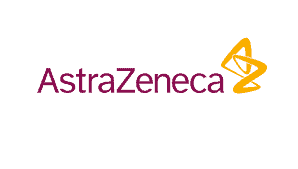
AstraZeneca has won EU approval for the first oral add-on to insulin in type 1 diabetes, just as Sanofi’s attempt to match that feat in the US has ended in failure.
The approval means AZ’s SGLT2 inhibitor Forxiga (dapagliflozin) can be used in the EU in overweight or obese type 1 diabetes patients who are struggling to keep control of their blood sugar on insulin therapy alone.
Sanofi has been less fortunate with its US marketing application for Lexicon Pharma-partnered dual SGLT1/SGLT2 inhibitor Zynquista (sotagliflozin) alongside insulin in type 1 diabetes, however, as this was rejected by the FDA on Friday in a complete response letter (CRL).
Type 1 diabetes is caused by an auto-immune reaction where the body attacks insulin-producing cells and accounts for around 5% of all diabetes cases, making it a much smaller market than the type 2 variant that results from genetic and lifestyle factors and typically starts later in life.
There is a broad array of insulin products on the market, including short-acting versions used after meals and long-acting (basal) insulins designed to give background control of blood glucose, but some patients still can’t achieve good control, and run the risk of complications such as damage to the heart, blood vessels, nerves, eyes and kidneys.
Both AZ and Sanofi/Lexicon’s drugs have been shown in clinical trials to achieve a significant and clinically-meaningful reductions from baseline in average blood glucose levels compared to insulin alone in these hard-to-treat patients.
The improved glucose control was however accompanied with both drugs by an increased risk of diabetic ketoacidosis (DKA), a side effect that in severe cases can lead to kidney damage, respiratory failure and death, and here the regulatory approach in the EU and US has diverged.
The EMA acknowledges the risk but has nevertheless approved Farxiga, while it seems that the FDA has taken a more cautious stance on the side effect and decided not to approve Zynquista.
The contents of the CRL sent to Sanofi and Lexicon have not yet been disclosed, although DKA seems the most likely explanation for the rejection as it was the primary reason for a split FDA advisory committee vote on the application in January.
In a conference call on Friday, Lexicon CEO Lonnel Coats would not discuss the contents of the letter or speculate on the likely length of the delay to the programme, merely saying that the two companies “will work closely with the FDA to determine the appropriate next steps.”
The decision is a blow to Sanofi’s hopes of rebuilding a diabetes franchise that has been hit the loss of patent protection for big-selling basal insulin Lantus (insulin glargine), which has seen sales slump from $8.5bn in 2014 to around $4.5bn last year.
Lexicon’s trials of the drug in type 1 diabetes showed an eight-fold increase in DKA in Zynquista-treated patients compared to placebo, according to FDA documents which suggest the agency is also concerned that DKA may be hard to predict as the imbalance seen in trials occurred despite efforts to minimise the side effect.
AZ’s drug has also been filed in the US, along with Japan, so it will be interesting to see how the FDA handles that marketing application when it delivers a verdict later this year. Analysts have suggested that an oral drug approved as an insulin add-on in major markets should be able to achieve blockbuster sales.




